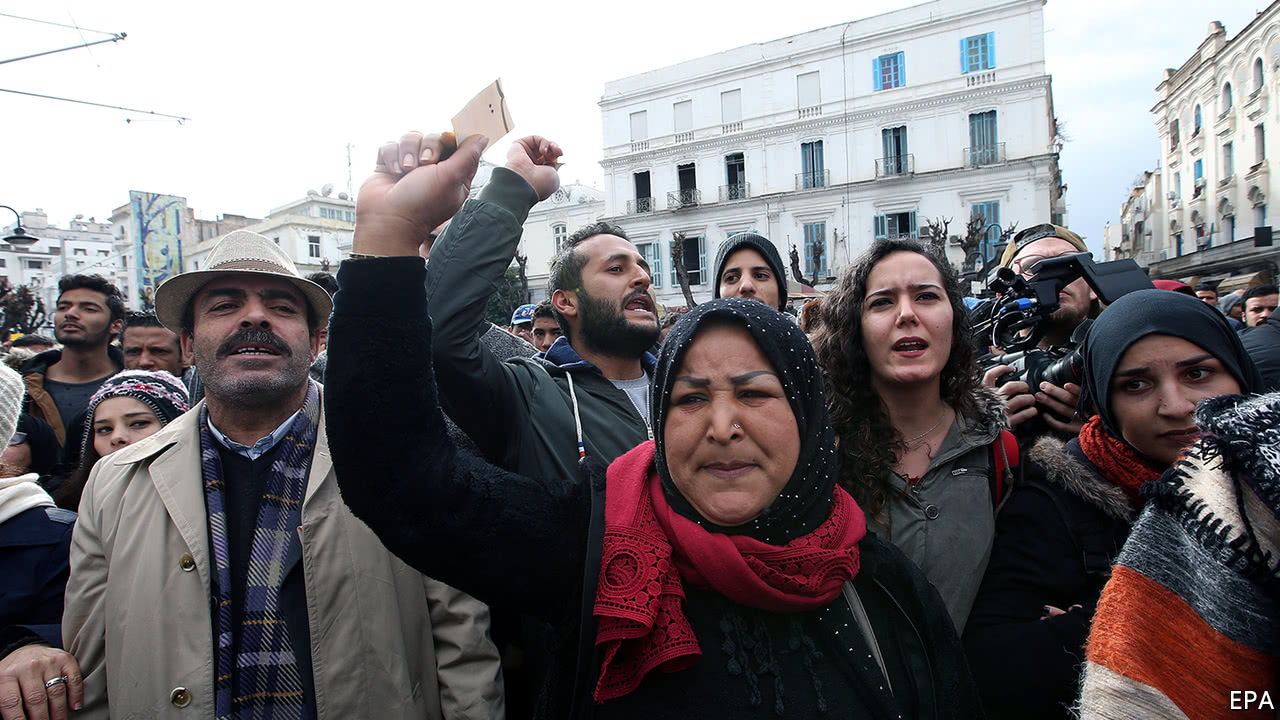DESPITE his best efforts, when President Beji Caid Essebsi visited Ettadhamen (“solidarity”) on January 14th, he did not engender much harmony. Protests had broken out a week earlier across Tunisia, many of them in places like Ettadhamen, a working-class suburb of Tunis, the capital. Though peaceful during the day, they turned ugly at night, with rioters burning police stations and trashing a supermarket. Hours after Mr Essebsi left Ettadhamen, riots erupted yet again, leaving the streets dotted with spent tear-gas canisters.
The unrest was sparked by a package of tax increases, affecting dozens of consumer goods, that took effect on January 1st. Fuel prices, which are heavily subsidised, were also raised. The government argues that it needs to shrink the budget deficit of 6% of GDP, and that many of the austerity measures are aimed at the rich—wine prices, for example, rose sharply. But so did the prices of basic necessities, such as bread and phone cards.
Hoping to head off...Continue reading
Source: Middle East and Africa http://ift.tt/2Ds4qZa


EmoticonEmoticon